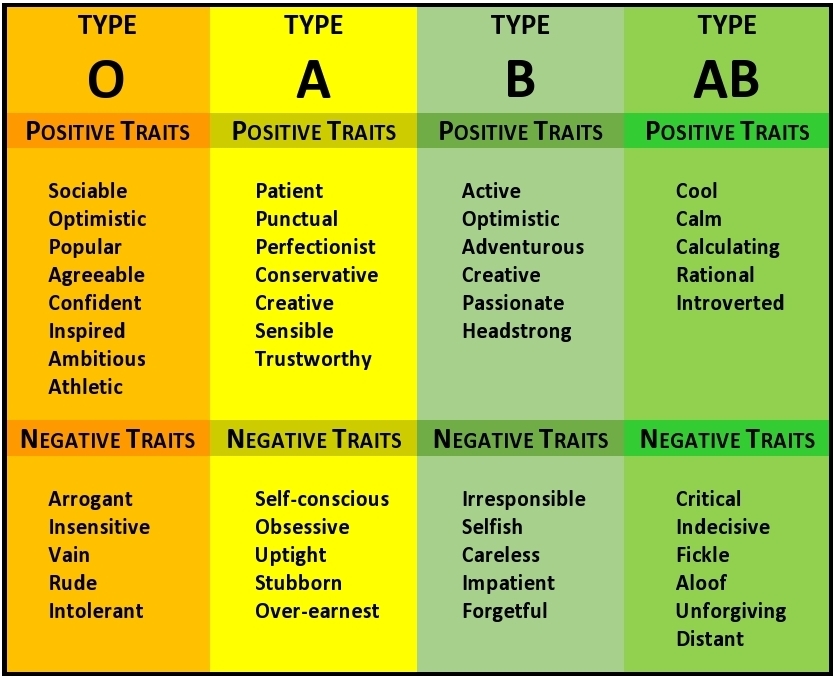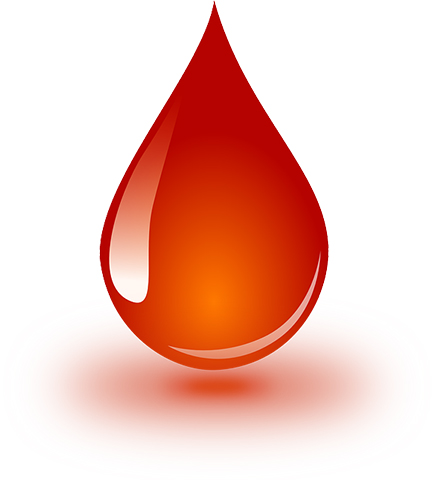It’s in the Blood
From Ethnic Nationalism to Personality Predictor
Written by Stephen Redeker.
Compiled by David Shaffer.
Bloodlines are of utmost importance to Koreans. It is not uncommon for family registers to trace the family line back half a millennium, and Koreans tend to pride themselves on having a “pure,” homogeneous lineage. Stephen Redeker explored the topic of Korean bloodlines in a Gwangju News article originally published in September 2012. In a tangentially related article, Redeker offered his take on Koreans’ fascination with blood type being an indicator of a person’s personality traits (Gwangju News; May 2012.) With Korea’s longstanding infatuation with fortune-telling of myriad types, including the oriental zodiac, it is easy to imagine how blood-type personality profiling would be enthusiastically espoused. Both articles are compiled here for your reading pleasure. — Ed.
“Pure Bloodlines”
Most people love their country. You hear many reasons why people think their country is the best in the world. Maybe it is the delicious and healthy food. It could be the beautiful landscape or architecture of the buildings. Perhaps it is the friendliness of the people. Koreans possess such beliefs about their country as well. There is a strong nationalistic feeling in Korea. One of these particular beliefs is about their heritage and ethnic identity. Some Koreans think that as a nation and as a race of people, they are a “pure-blooded” population, and that Korea has descended from a unified group of ancestors with no racial mixing.
Studies have revealed that the earliest settlers on the Korean Peninsula may have arrived some 500,000 years ago. Much more recently, migrations have come from the Siberian plains, then Mongolia, and later from the Manchurian area of eastern China. (One will recall that the common birthmark on Korean babies’ backside is called a mongol-cheom [몽골점, Mongolian mark].) DNA-sample studies also show strong similarities in physical traits between southern Koreans and the Japanese.
To truly understand this Korean myth, you need to recall history spanning the past century. In the very early 20th century, the “pure bloodline” belief came about when historian Shin Chae-ho wrote about the Korean minjok (민족, people, ethnic group), which he described as a warrior group who fought off invaders to preserve the Korean ethnic identity hundreds of years prior. He declared that since the minjok movement had been in decline, it was necessary to reinvigorate the cause, especially due to Japanese colonization and assimilation at that time. This belief was a strong way for the Korean people to resist Japanese rule and unite the people during a time of serious national crisis.
As time continued, the “pure bloodline” myth remained a steadfast ideology. Despite the fact that the beliefs in a pure race declined after the World War II defeat of Germany and Japan, Korea (both North and South) continued teaching this ideology of racial purity. It was used as a political tool by former presidents Syngman Rhee and Park Chung-hee as a means to make the citizens more obedient and support an anti-Communist agenda. North Korean propaganda declared Koreans as “the cleanest race.” The common bloodline belief continues on today and helps shape political and foreign relations. It also provides Koreans motivation for national pride and further fuels hope for a reunified Korea.
Times are changing and Koreans are forced to re-assess their beliefs in a single-blood population of people. Korea is increasingly becoming more multicultural, with many foreign workers calling Korea their home and an increase in international marriages. Multiculturalism was highly publicized in Korea by Hines Ward, the American football player and Super Bowl MVP. Ward’s father is African American and his mother is South Korean. After traveling to Korea, he preached acceptance of mixed-raced children and donated one million USD to found the Hines Ward Helping Hands Foundation for assisting mixed-race children in Korea.
But not all Koreans have accepted an international and multicultural presence in Korea. Many migrant workers and other immigrants still face discrimination and prejudice. Xenophobic concerns arise from many Koreans when foreigners (including United Nations committee members) attempt to refute these claims about a pure race. Some Koreans believe a challenge to this ethnic nationalism may dilute the strong national pride of the people and weaken the desire for Korean reunification.
All things considered, believing in single, pure-blooded ethnicity was an integral ideology during the past century, given the many challenges that Koreans faced. Maintaining a sense of nationalistic pride was essential during times of invasion by other forces (the Mongols, the Manchus, the Japanese), which threatened the well-being and culture of Korea. Now in the modern era, Korea must deal with the increasing number of multicultural families living here, as many Koreans are building families with partners from foreign nations. The number of people moving to Korea and raising multicultural children is continually increasing as well. In fact, 5.2 percent of children born in Korea in 2017 were from mixed marriages. Love and acceptance for non-Koreans living in Korea is something that will hopefully become a widespread reality and, despite those with conservative beliefs, will strengthen the Korean nation both in the eyes of its people and in those of the rest of the world.
Blood Type: More Than Just a Letter
Whether you are a native Korean or a fresh-faced foreigner here for only a short while, you have likely heard people talking about “blood type.” It could simply have been in reference to a standard medical exam or blood donation, but to Koreans it has another meaning. Many believe that one’s blood type is directly related to one’s personality traits. This belief does not originate in Korea, but it has been embraced here and often comes up in casual conversation.
The belief that blood type influences personality and temperament is something like the Western thought that zodiac signs (determined by one’s birth date) have a direct correlation to fortune/misfortune, life, personality, and compatibility with others. There is a small minority who make decisions based on what the horoscope dictates, and those people are most likely the ones who would ask the clichéd question “What’s your sign?” on a blind date. Inversely, in Korea, “What’s your blood type?” is not such an uncommon blind date question!
The blood type myth dates back almost a hundred years, with its origins in Japan. After 1970, it regained popularity when Japanese journalist Masahiko Nomi published books on the subject. Some companies even grouped workers by blood type, thinking that they would work better together. Blood type plays much less of a role these days, but it is still in the back of many people’s mind here in Korea. Here is a look at the personality traits associated with each of the four blood types: A, B, AB, and O.

Type A
The Good: Patient, punctual, perfectionist, conservative, creative, sensible, trustworthy. The Bad: Self-conscious, obsessive, uptight, stubborn, over-earnest. These people are considered to be mild-mannered, very loyal, and considerate of others. They may also be very secretive, reserved, and passive-aggressive, yet also shy and sensitive. Compatibility: A and AB.
Type B
The Good: Active, optimistic, adventurous, creative, passionate, headstrong. The Bad: Irresponsible, selfish, careless, impatient, forgetful. Type B individuals tend to be very independent and go off on their own, caring not what everyone around them thinks. Strong-willed and goal-oriented, they may also be seen as shallow and selfish. Some Korean women tend to avoid Type B men, considering them to be “players” and not very reliable in the long run. Compatibility: B and AB.
Type AB
The Good: Calm, cool, calculating, rational, introverted. The Bad: Critical, indecisive, fickle, aloof, unforgiving, distant. This blood type is thought to be more about the brain than the heart. People with this blood type can be unpredictable but are usually well-organized and good with handling money. Some say this blood type often has a split personality. They may be shy but can also enjoy helping others and be outgoing to an extent. Compatibility: AB, B, A, and O.
Type O
The Good: Sociable, optimistic, popular, agreeable, confident, inspired, ambitious, athletic. The Bad: Arrogant, insensitive, vain, rude, intolerant. The Type O individual is seen as the ultimate go-getter, the natural leader who is expressive, passionate, and obsessive in their pursuits. They tend to take risks and can cause rifts with those who dislike their strong, outgoing personalities and center-of-attention tendencies. Type O people are eager to initiate, but sometimes they do not finish what they start. Compatibility: O and AB.
Do you believe your blood type matches the profile of the above personality traits? Do you even know what your blood type is? Koreans may very well be surprised at foreigners who do not know their own blood type. This myth about blood type and personalities has been disproven over time, but it still makes for good conversation fodder when a blind date develops into a lackluster affair!




